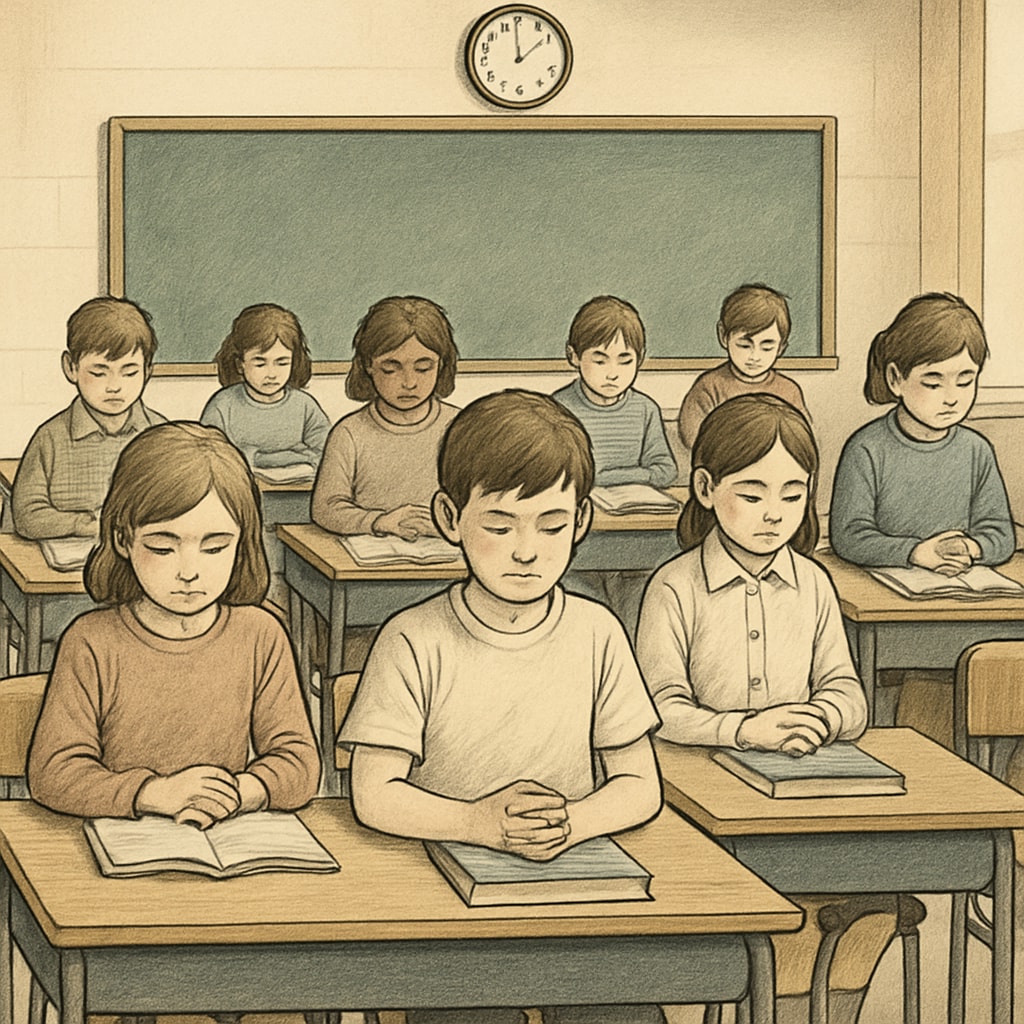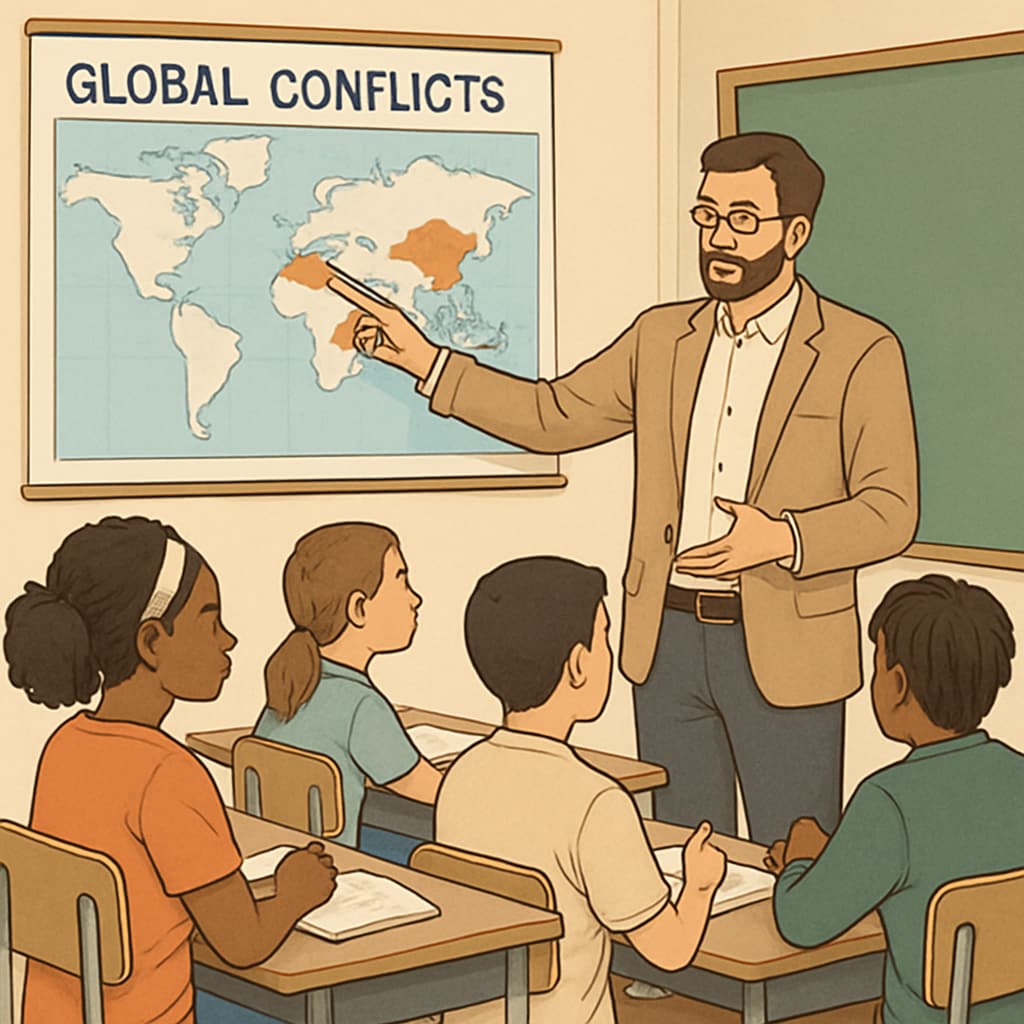Amid escalating global conflicts, including the Gaza crisis, schools have increasingly opted for “universal mourning”—a broad, non-specific approach to commemorating victims of war. This approach, framed as politically neutral, has sparked debates about its implications for school ethics, critical thinking, and the moral responsibilities of educational institutions. While neutrality may appear to shield schools from controversy, it raises critical questions about whether such strategies inadvertently undermine meaningful conversations about specific humanitarian crises, including those involving accusations of genocide.
The Push for Neutrality: Why Schools Choose “Universal Mourning”
In the face of politically sensitive events like the Gaza crisis, schools often aim to avoid taking clear stances to maintain harmony among diverse student bodies. By broadening the scope of mourning to include victims of all wars, institutions seek to sidestep divisive debates. For example, instead of holding a moment of silence specifically for Gaza, many schools have reframed such events to encompass “all victims of global conflict.”
This approach is often justified as a way to promote inclusivity and prevent the alienation of students with differing political or cultural perspectives. However, critics argue that this blanket neutrality dilutes the gravity of specific crises, such as accusations of genocide or severe humanitarian violations. By avoiding direct acknowledgment, schools may fail to equip students with the critical thinking skills needed to understand the complexities of such events.

The Ethical Dilemma: Neutrality vs. Responsibility
While universal mourning may seem like a balanced approach, it raises significant ethical concerns. Schools are not just places of academic learning; they are also spaces where values, empathy, and global awareness are cultivated. By avoiding specific acknowledgment of crises like Gaza, schools risk sending a message that all conflicts are morally equivalent, ignoring the unique contexts and injustices that define each situation.
For example, the Gaza crisis has been described by some international organizations as a humanitarian catastrophe, with widespread civilian suffering. Ignoring the specificities of such events in the name of neutrality can be seen as an abdication of moral responsibility. In addition, this approach may hinder students from engaging with and understanding the systemic issues—such as colonialism, inequality, and international law violations—that often underpin such crises.
Ethical education demands more than neutrality; it requires fostering a sense of justice and critical inquiry. Schools have a unique opportunity to help students navigate complex moral landscapes, but this potential is diminished when schools avoid addressing contentious issues altogether.

Fostering Critical Thinking in Politically Charged Contexts
One of the primary roles of education is to develop students’ ability to think critically and engage with complex issues. This becomes particularly important in the context of politically charged events. By reframing specific crises as part of a broader, generalized narrative, schools may unintentionally stifle opportunities for meaningful dialogue and learning.
Instead of avoiding the topic, educators could adopt a more nuanced approach. For instance:
- Provide historical and political context to help students understand the roots of specific conflicts.
- Encourage open discussions that allow diverse perspectives while grounding debates in facts and empathy.
- Incorporate interdisciplinary methods, such as literature, art, and history, to explore the human impact of crises like Gaza.
- Partner with organizations that promote peace education to introduce constructive ways of addressing global conflicts.
By doing so, schools can transform moments of silence into moments of reflection, inquiry, and growth. Such an approach not only honors the victims of specific crises but also prepares students to become informed global citizens capable of addressing future challenges.
Conclusion: Reimagining Ethical Education
The ongoing debate over “universal mourning” underscores the tension between political neutrality and ethical responsibility in education. While schools may aim to avoid controversy, they must also consider the long-term implications of their choices on students’ moral and intellectual development. In the case of the Gaza crisis, adopting a more specific and informed approach to commemoration could foster greater awareness and empathy, empowering students to engage critically with the world around them.
Ultimately, education should not shy away from complexity. By embracing the challenges of teaching about specific crises, schools can cultivate a generation of leaders who are not only knowledgeable but also compassionate and courageous in the face of injustice.
Readability guidance: Short paragraphs and lists are used for clarity. The text balances active and passive voice and incorporates transitional phrases to ensure smooth reading. Images are placed to complement discussions on ethical education and universal mourning.


